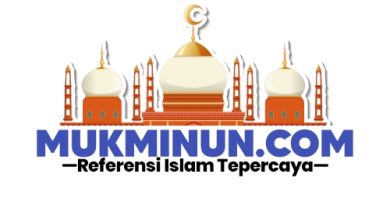Formulation of Writing Theories and Construct
Writing is viewed by Kooser (2006: 118) as communication just quite the same as speaking. The argument gets supported by Barry Holstun Lopez – the author of River Notes and Arctic Dreams – (in Kooser, 2006 : 3) as stating that writing is ‘telling the best story’ we know. Likewise, an outstanding writer, Bil Gilbert, says that ‘writing is telling a story to a stranger’ (in Kooser, 2006: 63). Finally, writing as a communication allows the existence of ‘information transmission’ as stated by Collinge (1990: 312).
Highlighting ‘transmission’ on the above paragraph, there must be one or more meaning within a writing that is deliberately expressed by a writer. That is why; writing – according to Tierney and Pearson (in Collinge, 1990: 312) – is concerned with ‘creating meaning.’ Writing as a process is a ‘practice requiring iterative performances – including the embodiment of a complex set of knowledge and skills to achieve competence (Knapp and Watkins, 2005: 81). More specifically, Swales argues that writing ‘involves focus on ‘making meaning appropriately within its terms’ (in Chambers and Gregory, 2006: 150).
As writing tends to be permanent rather than any other language skill such as speaking and listening, writing demands ability to convert mental experience undergoes on human brain into words. Therefore, Kooser (2006: 11) states that writing is ‘transformative experience.’ It means that writing alone is a medium for people to ‘transform’ people’s ‘thoughts – information, knowledge, and wisdom— into words (Kooser, 2006: 111). In the other words, writing may also be said as an attempt at ‘recording spoken language through a conventionalized system of graphic signs’ (Bussmann, 1998: 1294).
Then, how do people cope with the number of information or knowledge when they have to make writing? At this stage, the abilities to ‘reject irrelevant information, to summarize relevant points, and to organize relevant information are needed (Matthews, Spratt, and Dangerfield, 1985: 71). Then, when all done, a writer is required to be capable of ‘using linguistic cohesion devices, expressing precise meaning in a variety of styles and registers, and using a variety of sentence patterns and constructions (Matthews, Spratt, and Dangerfield, 1985: 71).
B. Construct
Writing is a means of communication (Kooser, 2006: 118), an attempt to transmit information (Collinge 1990: 312), a transformative effort to convert mental experience into words (Kooser, 2006: 111), and a work to create meaning to be transmitted (Swales in Chambers and Gregory, 2006: 150).
To achieve those goals, thus a writer should be able to exploit his/her grammatical, rhetorical, organizational and expressive skills all together. For that reason, there are four main points to be tested or measured in writing; that of one’s grammatical skill, rhetorical skill, organizational skill, and expressive skill.
References:
Aronoff, Mark and Rees-Miller, Jannie (Eds.), 2002. The Handbook of Linguistics. Blackwell Publishing: London.
Carter, Awena (Ed.), 2009. Why Writing Matters. Issues of access and identity in Writing Research and Pedagogy. John Benjamins Publishing Company: Philadelphia.
Chambers, Ellie and Gregory, Marshall, 2006. Teaching and Learning English Literature. Sage Publications: London.
Collinge, N.E., 1990. An Encyclopaedia of Language. Routledge: London.
Kooser, Ted and Cox, Steve, 2006. Writing brave and free: encouraging words for people who want to start writing. University of Nebraska Press: London.
Task, R.L., 1999. Key Concepts in Language and Linguistics. Routledge: London.
Williams, James Dale, 2003. Preparing to Teach Writing: Research, Theory, and Practice. Lawrence Erlbaum Associates, Inc., Publishers: New Jersey.


numpang beken sob